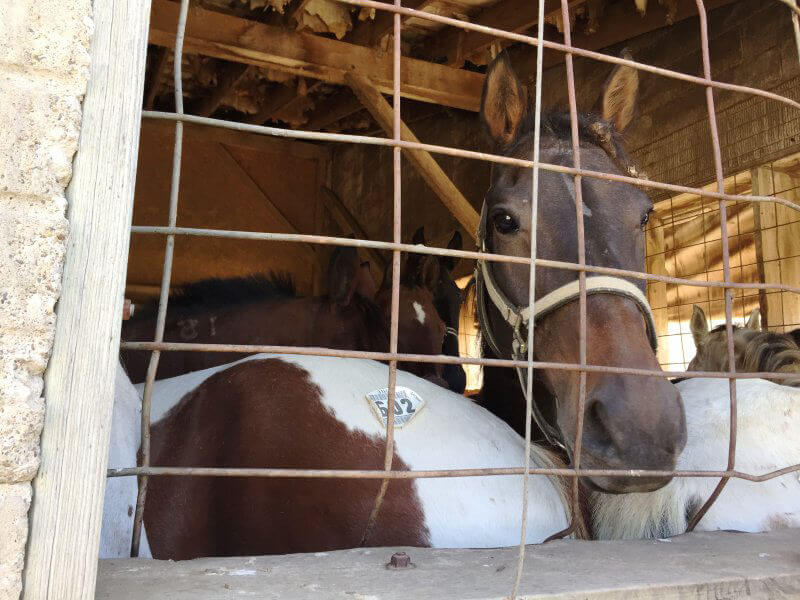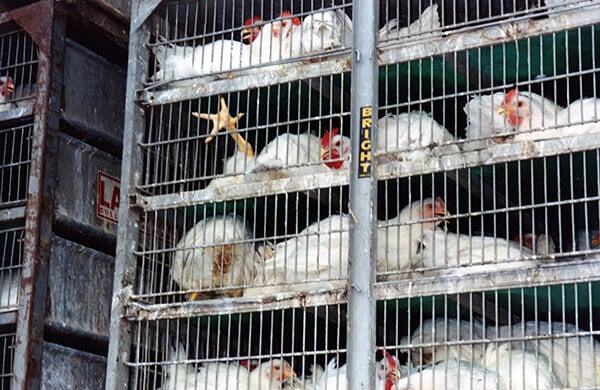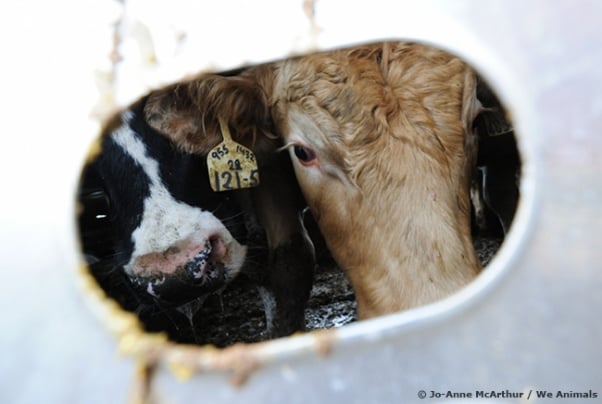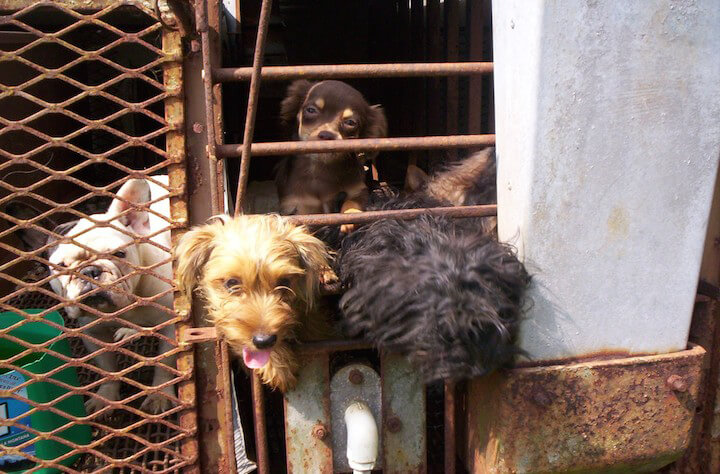Animals Aren’t ‘Freight’: 11 Ways You Can Help Them
Every week, more than a billion live animals are transported worldwide over long distances, through blazing heat and freezing cold, often without food, water, or veterinary care—as if they were nothing more than freight. Their grueling journeys frequently end at a slaughterhouse, where they face a terrifying death. Others end up on pet store shelves or in laboratory cages.
On September 13, 2017, caring people around the world participate in a global day of action against all forms of live-animal transport. This day marks the anniversary of the world’s worst live-export disaster, when more than 67,000 sheep burned to death or drowned when the ship carrying them across the Indian Ocean burst into flames and sank.
The best way to help animals is never to buy them or their body parts for any reason, but we can also help reduce their suffering by taking action now to improve their transport conditions. Here are 11 actions you can take:
Tell Air France officials that you won’t fly with them until they stop shipping live monkeys.
The airline continues to ship monkeys to laboratories to be tormented in experiments, even though every other major airline in the world refuses to do so. The monkeys are bred in captivity on squalid factory farms or torn away from their homes and families in the wild before being crammed into tiny wooden crates and loaded into the cargo holds of both cargo and passenger planes.
Refuse to attend circuses that use animals.
Animals used in circuses are forced to spend most of their lives in cramped, barren cages and trailers. Elephants are kept in leg shackles that prevent them from taking more than one step in any direction, and Ringling Bros. forces big cats to travel for up to 50 weeks a year. Most are allowed out of their cages only during the short periods when they have to perform. Help end this abuse by attending only animal-free circuses.
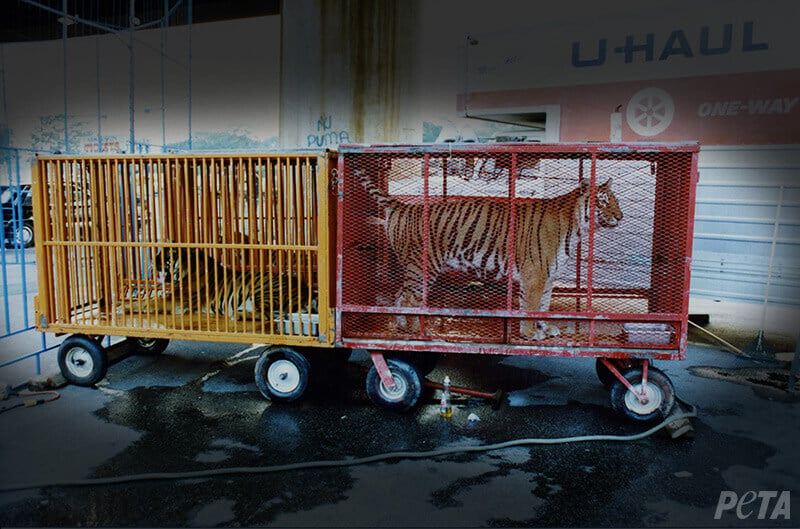
Speak up for horses transported internationally and slaughtered for meat.
Every year, more than 100,000 American horses are crammed into livestock trailers and trucked to slaughterhouses in Canada and Mexico, often without food or water. Urge your legislators to support bills that would end this cruelty.
Write a letter to your local paper about chickens transported for food.
Let people know that chickens are rounded up by workers who grab them by the legs and sling them into crates for transport, often breaking their fragile bones. They are often deprived of food and water, and the journey to the slaughterhouse may be up to 12 hours long, through all weather conditions.
Urge Australia to end cruel live sheep exports.
Australia sends more than 2 million live sheep to the Middle East every year—a grueling trip across the Indian Ocean in the searing heat, sometimes taking weeks. More than 200 million animals have been crammed onto filthy cargo ships over the last 30 years, and more than 2.5 million of them have been trampled to death or have died of dehydration, starvation, or disease.
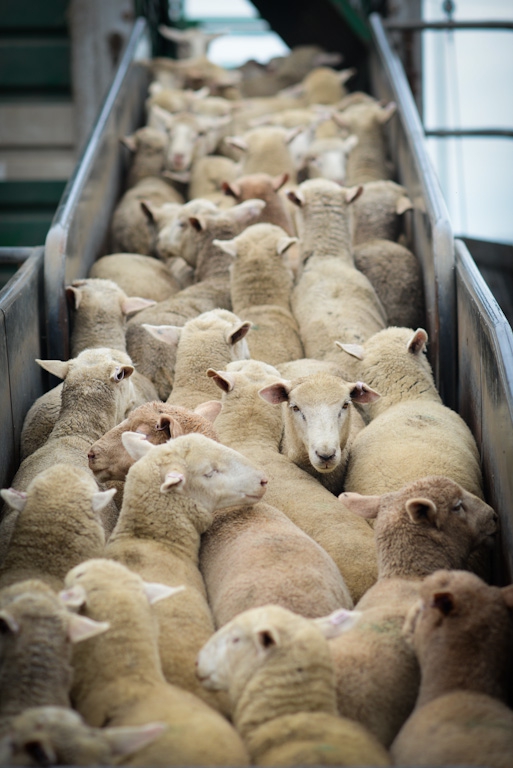
Meet with your political representative to discuss the way cows are transported for slaughter.
They are crammed onto trucks for journeys that can be 1,500 miles long. Many collapse in hot weather or freeze to the sides of the truck in winter. Cows who are too lame to walk when they reach the slaughterhouse are often dragged to their deaths by ropes or chains.
Don’t buy betta fish.
A PETA investigation revealed that betta fish are often transported from dealers to pet stores in tiny plastic bags stuffed into cardboard boxes. These sensitive animals can be jostled around for days, often from one end of the country to the other. Help spread the word and encourage others to let fish live in peace in their natural homes and not to support pet stores that sell them.
Never patronize pet stores.
Even if a store claims that it doesn’t buy from puppy mills, it probably buys from a broker that does. Puppies are torn from their mothers, packed into crates, and shipped for hundreds of miles in pickup trucks, tractor trailers, and airplanes, often without adequate food, water, ventilation, or shelter. Every penny spent at a pet store supports this abuse, so buy your animal-care supplies only at stores that don’t sell animals or online, and always adopt from animal shelters.
Don’t go to zoos.
Zoos routinely transfer animals among facilities, which is a stressful and terrifying ordeal that sometimes kills them. Transporting giraffes and zebras is especially risky because they’re skittish by nature and try to flee when frightened. Giraffes’ bodies are so fragile that they routinely injure themselves—sometimes fatally—by running into the sides of transport cages in panic. This happens so often that the primary transporter of giraffes for zoos factors the cost of a government fine for accidents into its shipping price.
Hold a vigil or remembrance service for pigs transported for food and invite media to attend.
In order to force terrified pigs onto trucks bound for the slaughterhouse, workers often shock them with electric prods. No laws regulate the duration of transport or the provision of food, water, and rest. According to industry reports, more than 1 million pigs die each year during transport.
Spread this message far and wide to your family, friends, and colleagues.
There’s no better way to do this than by sharing the Animals Are Not Freight Day of Global Action on social media. Knowledge is power—let your friends, neighbors, and family know about this campaign so that we can end the extreme crowding, exhaustion, dehydration, pain, and stress endured by animals in live transport.
Animals who suffer during transport need compassionate people to speak up for them—and your voice can make a difference. For example, thanks in part to individuals who voiced their concern, almost every major airline in the world now prohibits the transportation of primates to laboratories. Let’s make a difference by speaking out against cruelty in the transportation of all animals!
